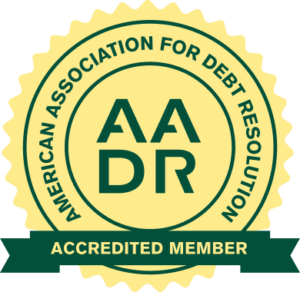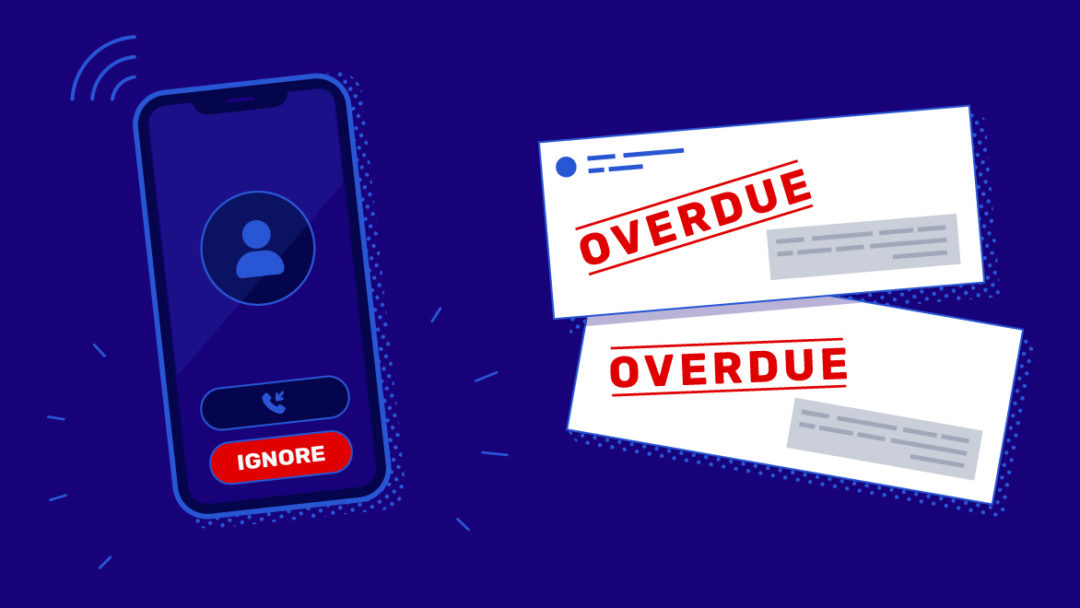Debt Settlement and Relief
Sticking to a budget is hard enough without adding today’s soaring inflation and a large amount of debt to the equation. Since inflation isn’t going away anytime soon, now is an opportune time to pay off your debt.
Did you know that most credit cards have variable APRs? That means that as the fed raises interest rates, your APR will rise with it. If you are only covering minimums, you can expect to pay more on your carried balances. And the way things are going, it could add up to a lot more. You can help ensure that doesn’t happen by paying off your debt now through a debt relief settlement program.
Debt relief—also known as debt settlement and debt negotiation—refers to having an expert negotiate with creditors on your behalf. The goal is to get creditors to accept less than you owe in exchange for settling the debt to a $0 balance. Since it is not a one-size-fits-all solution, let’s go over the options to determine which one might best fit your needs.
Debt relief is available for these types of unsecured loans:
- Credit Cards
- Personal Loans
- Lines of Credit
- Medical Bills
- Collections
- Repossessions
- Business Debts
- Certain Student Debts
What Are The Options And Benefits Of Debt Relief
Hundreds of thousands of people have used debt relief settlement to pay a lump sum that is less than the amount they owed.
If you choose to go this route, an expert will negotiate with creditors on your behalf to reduce your amount of debt. The next step is to set up affordable monthly payments for you to pay off the rest. You could see your accounts resolved in as little as 24-48 months. If you don’t have an income and saving money eludes you, you will not qualify for this method. But don’t worry, there are other options available for you to consider.
- Bankruptcy
Bankruptcy provides important protection for consumers who find themselves overwhelmed with debt. While a sizable amount will be wiped out whether you file for Chapter 7 or Chapter 11 bankruptcy, it is not an easy way out. There will be a stain on your credit report for 10 years and in your personal file for the rest of your life!
In addition, a chapter 7 bankruptcy would likely lower your credit score substantially and make it nearly impossible to qualify for new credit for 2 to 3 years. If a lender does approve you after that for a new loan, you can expect to pay high interest since rates are based on your credit score and history.
- Credit Counseling
This debt relief option simplifies your repayment process, making it easier to pay off your debt. When you contact an agency via a website or in person, a counselor will spend about an hour discussing your financial situation—often at no cost.
If your debt is substantial, the counselor may recommend a debt management plan (DMP). In this scenario, your counselor will determine how much you can pay before negotiating on your behalf with creditors. The outcome can be longer terms, lower monthly payments based on what your budget allows, or a reduction in interest rates.
If the majority of your creditors agree to your debt management plan, you would immediately stop paying them. Instead, you would send one payment each month to the credit-counseling agency. They are responsible for distributing the money to creditors per your mutual agreement.
The downside is that it typically takes five years to complete. During that time, you would be required to shelve the credit cards that aren’t in your plan and not take on any new credit until you have paid off your debt.
The benefit is that your monthly payment will be much lower than the amounts you are currently making. You may also have any penalty charges and fees waived. Best of all, you will put an end to creditors harassing you for payment.
- Self-Payment Initiative
This type of debt relief provides the option for you to try to pay off your debt on your own. It is not easy, but it can save you time and money. While you won’t be burdened with the fees that come with hiring someone, the odds of paying off your debts are slim given your financial history.
To start with, you need a plan that shows how much debt you owe and your ability to pay it off. This will provide a full picture of your financial situation, which is the important first step in getting it under control. The easiest way to do this is through a spreadsheet, which you can find for free on Google Docs:
Create four columns
- Include the name of the creditor
- The total amount owed
- Your minimum payment (if applicable)
- Payment due dates
Some people consider the next step cringeworthy: calling creditors to demonstrate your financial hardship. Be prepared to show documentation that backs up your claims. If you can convince creditors that you are short on funds, you can discuss the possible options that would enable you to meet your debt obligations.
There are three other possibilities you could discuss with your creditors:
- Have your interest rates reduced to lower your monthly payments
- Suggest a timeout period of two to three months during which time you would take a break from making payments. This will give you breathing room to get your finances reorganized and to save money that might allow you to catch up on payments.
- Have some or all your credit cards converted into repayment programs. Please note that you would likely be required to give your credit cards a rest. In turn, you would have fixed payments for a set amount of time.
- Debt Consolidation
When debt piles up, keeping up or catching up with your bills can become an uphill battle. Maxed out credit cards or cards with high balances need to be paid immediately, before they get completely out of hand. Consumers in this situation often turn to debt consolidation.
When you take out this type of loan, you use the funds to repay your high-interest credit card debt. The balances are then consolidated into a new, single loan with lower monthly payments at a reduced interest rate.
A debt consolidation loan could help you:
- Extend your repayment term
- Save money with a lower interest rate
- Lower your monthly payments
These type of loans are unsecured, which means no collateral is needed to guarantee it. Your interest rate will be based on your credit score, income, and other financial information. It is usually higher than that for a secured loan because the lender takes on more risk if the loan isn’t backed by collateral.
To avoid further debt, it is essential to work with an experienced debt relief company. They can help you pay off your debt and shape better spending habits moving forward.
- Minimum payments vs. debt settlement
A credit card minimum payment is the lowest amount you can pay every month while still keeping your account in good standing. By making minimum payments on your credit cards every billing cycle, you can avoid nasty late fees, penalty APR and a ding on your credit score. But it could cost you thousands of dollars in interest over a long period of time.
Debt settlement, on the other hand, can provide a financial breather and put you on the path toward rebuilding their credit. You will usually pay less than you owe and become debt free in a shorter amount of time. As you settle your debts, your credit score should start to recover.

Dalton, Professional, Enjoys riding his motorcycle
“National Debt Relief put together a plan that I could follow and afford. If I just kept making minimum payments it would’ve taken 40 years to pay off.”
- When Should You Consider Debt Relief?
Debt relief isn’t a one-size-fits-all solution. Before going over your options, you can save yourself time by seeing if you qualify to enroll in a debt relief program.
The odds are good you would qualify for debt relief if:
- You are paying just the minimums on your credit card bills or other loan payments
- You are still up to date on your bills, but you are living paycheck to paycheck.
- You have tried to pay down your debt on your own, but it was too difficult without support from an expert
- You are so overwhelmed that you have considered drastic measures like bankruptcy
Debt settlement can reduce the amount you owe and shorten the length of paying off the debt. Other benefits include:
- Avoiding bankruptcy
- Saving money
- Saving time
- Stopping calls from debt collectors
- Steering clear of legal trouble
It offers a way to avoid declaring bankruptcy. A bankruptcy generally stays on your credit report for 10 years and has the potential to do even more damage in the long run.
One of the biggest pros of debt settlement is the potential to wipe out debt for less than the amount you owe. For instance, you might owe $20,000 to a credit card issuer, but they are willing to accept a lump sum of $15,000 to wipe out the entire debt.
A debt settlement might take two to four years to complete, compared with three to five years for Chapter 13 bankruptcy, debt consolidation or debt management.
Once you have settled a debt, those pesky calls, emails, and other contact from debt collectors will stop once and for all. No longer being pestered by debt collectors can make your life so much easier.
When you agree to settle a debt, you might be able to avoid being sued by a creditor to recover the money they are owed.
As with essentially everything, there is a downside to debt settlement:
- Paying fees
- Coming up with money for the settlement
- Being unable to settle all your debts
- Paying taxes on settled debt
- Seeing the debt settlement on your credit report
Fees charged by debt settlement companies typically range from 15% to 25% of the amount of debt that is enrolled in a debt settlement program. You will still pay less than if you hadn’t gone this route. It is important to note that any legitimate company will NEVER charge upfront fees. It is unethical and illegal!
If you get the go-ahead to settle a debt, you will be required to come up with a lump sum of money to make this happen. National Debt Relief and other legitimate debt settlement providers require a client to make monthly deposits into a savings account in their name. Once the account contains enough money for a lump-sum settlement, a creditor is paid off. This continues until you are debt free.
Reputable debt settlement companies like National Debt Relief only handle unsecured debts like credit cards, personal loans, medical bills, cellphone bills and rent payments. They do not help consumers reduce or eliminate secured debts such as mortgages, auto loans, child support and past-due taxes. If you have $10k or more in unsecured debt, this option could get your finances back on track.
Forgiven debt, such as that eliminated in a debt settlement, is subject to federal taxes.
Settled debt can temporarily put a dent in your credit score as payment history represents the # 1 factor in calculating your credit score. But if you don’t pay off your debt, your credit score will be much lower.
Did you know that debt comes between more than you and your money? It can also affect your mental and physical well-being, relationships and cause you to withdraw from life altogether.
Even if you are not consciously brewing about your debt, your subconscious is constantly nudging you about past due bills, big balances, and those things you can no longer afford.
If you are already physically or emotionally stressed, debt can increase your burden tenfold. Receiving past due bills or calls from creditors can push you over the edge. That is when many people shut down, but ignoring the situation never makes it go away.
It is no wonder debt affects our mental health and vice versa. According to a double-opt-in survey of 2,000 Americans commissioned by National Debt Relief and conducted by OnePoll, being in debt not only increased their anxiety but also affected their retirement plans and marital status.
If any of the descriptions below describe you, debt is hurting way more than your wallet:
Debt and Mental Health
- You and your spouse or partner constantly fight over money
- You feel emotionally drained because so much of your paycheck is going to pay down interest and fees, and you don’t envision your balances ever going down.
- You are stressed out and losing sleep as you are forced to take cash advances to pay ordinary expenses like utilities
- You have been skipping the payments on some bills to pay others
- You have almost completely drained your savings just to get by
- You are suffering the anxiety of creditors who are hassling you about overdue bills
- You feel awful because you have maxed out the limits on most of your credit cards
- You have lost all hope that you will ever be debt free.
Debt And Physical Health
- Nausea
- Indigestion
- Colds and sinus infections
- Fibromyalgia
- Arthritis
- High blood pressure
- Heart disease
- Headaches
Resolving your financial issues is the key to feeling physically better and feeling better about yourself. It is time to live your best life again – on your terms.
First, stop kicking yourself. Debt happens and what is done is done. No matter how you choose to pay off your debt, focus on your goals. It will help you get through this challenging time.
There are reputable debt relief companies that have your best interest at heart. But they are far and few between, so beware of scammers that offer “guarantees” to pay off your debt.
According to the Federal Trade Commission, one of the most popular scams is when you are asked to pay upfront before anything is done. Upfront fees are not only illegal, but they are also unethical. Legitimate companies earn their money by paying off your debt. Only when a balance is $0 should you ever pay for their services.
A reputable and honest debt relief company will:
- Have at least an A rating with the Better Business Bureau
- Be in business for more than five years
- Belong to the American Association for Debt Resolution, the watchdog of the debt relief industry
- Have many online reviews, with the majority of them favorable
- Rank highly on review sites such as Top Consumer Reviews, Best Debt Companies and Debt Settlement Review 2021/Best Debt Relief Services
- Have proven results
Equally important, a trustworthy company will operate transparently. Once you have signed up, they should involve you in every step of the settlement process. You should hear from your counselor once a week, at the very least. Funds should never be released until you approve of the settlement amount. In summary, a debt expert will lead you through the process from signing the agreement to the moment you are completely debt free.
You can expect support every step of the way with National Debt Relief. They have helped over 500,000 people pay off their debt, gain financial independence and get a fresh start.
Debt relief is the core of National Debt Relief’s signature solution. It can cut your monthly payments immediately to relieve cash flow pressure and help you focus on becoming debt free as inexpensively and quickly as possible.
Your initial, no-obligation consultation is free. Once you qualify for debt relief, National Debt Relief will provide an agreement that spells out the plan of action, what will be required from you and the cost of services. Once you sign the agreement you will no longer be required to pay your creditors—this helps prove financial hardship. Instead, you will make monthly deposits into a FDIC account in your name and under your control.
Fact:
At National Debt Relief, most people save 30% to 50% off their original debt amounts, and those savings are realized even after accounting for fees
As the funds build up, we will contact your creditor to negotiate and agree upon a reduced balance. Since you are no longer paying the creditor, they will likely view getting a reduced amount as better than risking no payment at all.
When one of your creditor debts is settled, your debt coach will contact you for approval and ask that you release the funds to cover the settlement. As accounts are paid off, they should be reported back as a zero balance. Fees are built into your monthly payments, so you will never have to scramble to find the funds.
National Debt Relief is accredited with an A+ rating by the Better Business Bureau and belongs to the AAmerican Association for Debt Resolution — the watchdog of the debt settlement business. To be a member of this Council, we pledged to treat our clients with transparency, honesty, ethics, and fairness.
The Benefits Of Choosing National Debt Relief
National Debt Relief’s debt coaches have your back. They will support you every step of the way, answer any questions you may have and revisit your repayment terms if you are struggling to meet your agreed-upon monthly payments.
By working with National Debt Relief, you will:
- Get financial counseling and guidance from debt coaches who have your back
- Create a budget plan that addresses your problematic spending pattern
- Have a lower monthly payment that is affordable for your tight budget
- Get payment charges and fees waived
- Have a sizable portion of your debt forgiven
- Focus on one monthly payment that funds your FDIC-insured account, which is what National Debt Relief uses to pay off your debts
- Settle your debt without compromising your other basic financial obligations
- Live a less stressful life as you pay off your debt in less time and with the most savings
Why Should You Trust National Debt Relief?
At the core of our client relationships is one simple factor: trust. We know that trusting anyone with your finances takes a leap of faith, and we live up to your expectations by putting your interests first. That way, we can better identify your goals and concerns before customizing an affordable plan that can save you the most money.
National Debt Relief is the first debt settlement company to be accredited with an A+ rating by the Better Business Bureau, the American Association for Debt Resolution, and the Internal Association of Professional Debt Arbitrators. We are proud to be the country’s only debt relief provider to enjoy recognition from these three important organizations.
Our commitment to client care leads the industry. We will always act in your best interest and our reviews reflects that promise:
- Over 75,000 5-star reviews from clients who have taken back control of their finances
- 4.83 out of 5 rating on TrustPilot
- Rated #1 for debt consolidation by:

Call today for your free, no-obligation consultation and pay off your debt with the debt relief plan you can live with:
- Affordable monthly payments
- Become debt free in as little as 24-48 months
- Established relationships with over 10,000 creditors
- Expert support and advice
- Accredited with the Better Business Bureau
- Top-rated client reviews
We promise to support you throughout your debt relief journey, just like we have done for over 500,000 people across the country. If you have a minimum $10k in unsecured debt, you could qualify for National Debt Relief and take back control of your life. But you won’t know until you complete our no-obligation debt consultation form or call.

Something really exciting happens after people have their first phone call with us.
They immediately feel a sense of relief knowing they have a plan to get out of debt.
Pay off your credit card debt
- Receive A Free Savings Estimate Today
- See How Quickly You Can Be Debt Free
- No Fees Until Your Accounts Are Settled







